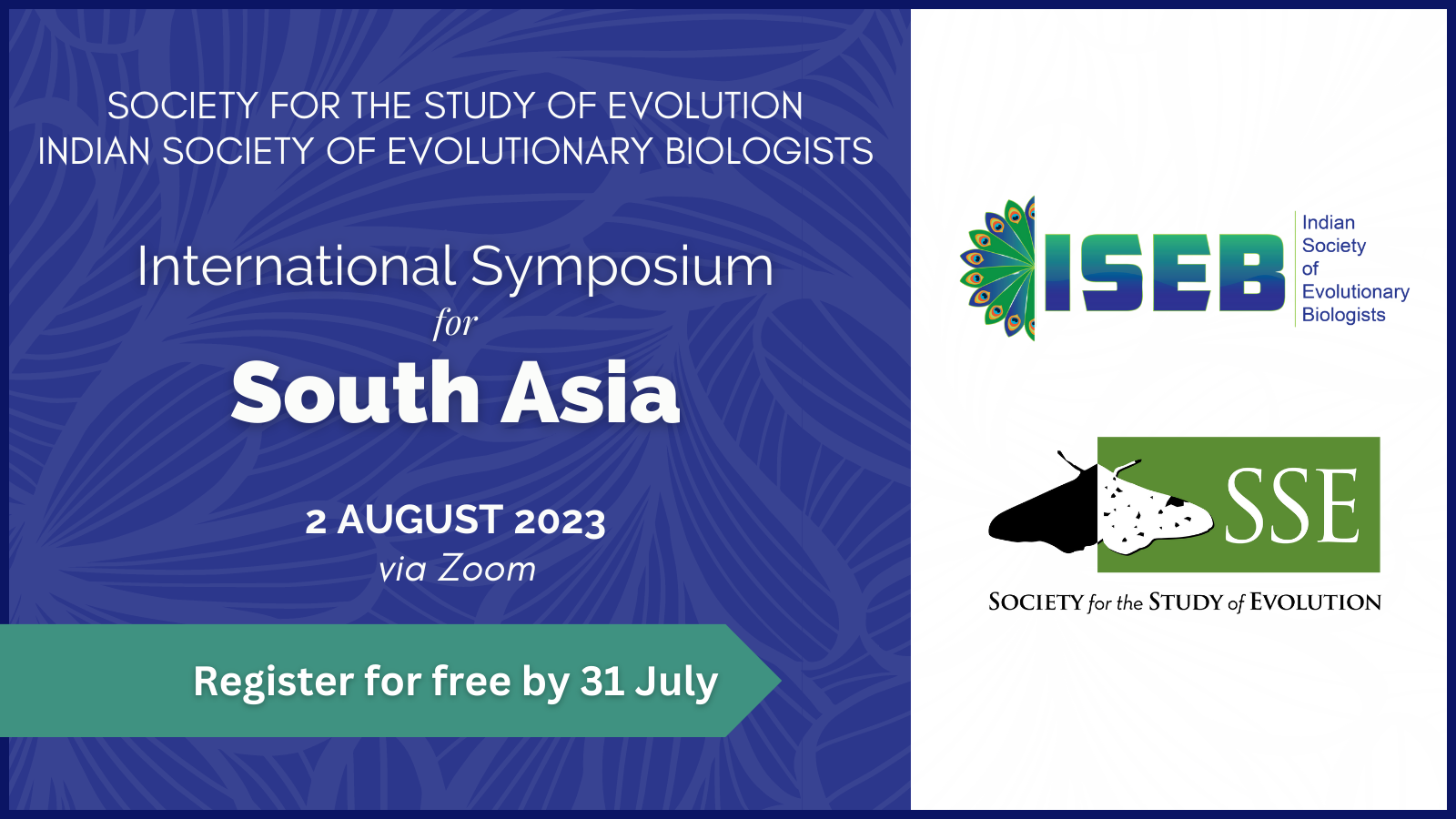
ABOUT | SPEAKERS | SCHEDULE | WORKSHOP| REGISTER
To celebrate the diversity of the international membership and strengthen ties with the global community of evolutionary biologists, the Society for the Study of Evolution (SSE) is hosting a free virtual series of international symposia in different languages and time zones.
The first SSE International Symposium was held in October 2022 and was aimed at the Spanish-speaking community in Latin America. The talks were in Spanish with simultaneous Spanish-English translation and they can be viewed here.
The second SSE International Symposium is for the South Asian community of evolutionary biologists and will be held on August 2, 2023 via Zoom. This symposium is organized in collaboration with the Indian Society of Evolutionary Biologists (ISEB). The symposium will be followed by a workshop on August 3 on how to publish in Evolution.
Registration for the symposium and workshop is free. Please sign up by Monday, July 31 to reserve your spot.
Speakers were selected through an open call and comprise six early career researchers (ECRs) and two senior researchers working in a diversity of disciplines.
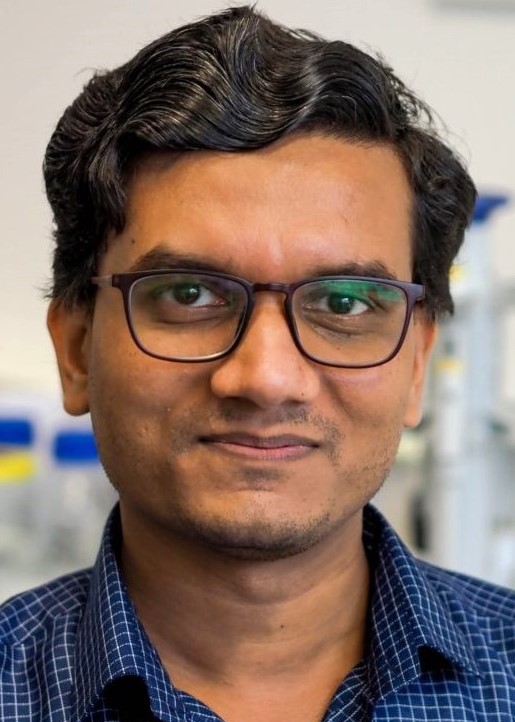 |
Vivek Keshri (He/Him, ;@DrVivekKeshri) is an Assistant Professor at India's REVA University in Bengaluru. His research centers around the study of beta-lactamases, particularly their identification and functional evolution. |
.jpg) |
Aritra Biswas (He/Him, ;@AritraB24401348) is a PhD candidate at the Centre for Ecological Sciences, Indian Institute of Science. He studies the historical biogeography and macroevolution of tarantulas. Broadly, he is interested in the processes that generate and maintain biological diversity over large timescales at both global and local levels. |
.jpeg) |
Mariam Mohammad Hashim (She/Her) is a Research Associate at Lahore Medical Research Center LLP. Her primary focus and expertise lie in conducting research using in-vitro and in-vivo modeling techniques. |
.jpg) |
Pratibha Sanjenbam (She/Her, ;@PSanjenbam) is a postdoc at the National Centre for Biological Sciences. Her work aims to understand the key ecological and evolutionary processes which govern the interaction of beneficial microbes with their host plants. |
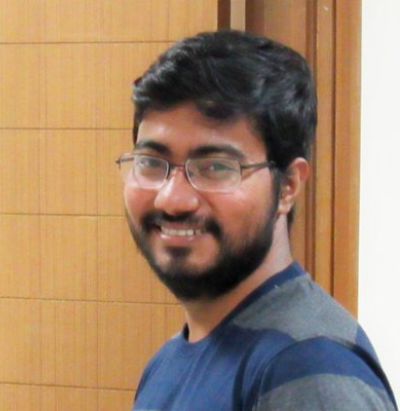 |
Sudipta Tung (He/Him, ;@sudiptatung) is a DBT/Wellcome Trust India Alliance Early Career Fellow at the Ashoka University, India. He studies the interplay between environmental factors and genotypic variations in shaping diverse phenotypic outcomes and population abundance. |
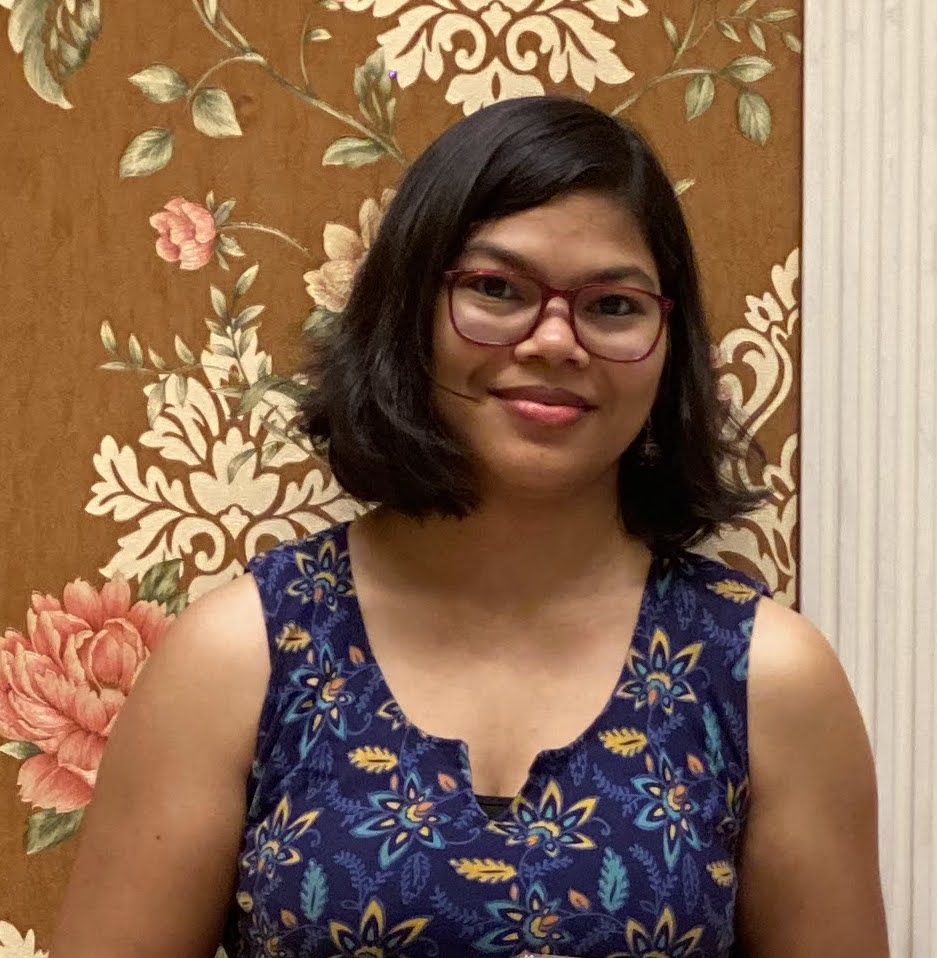 |
Ruchishree Konhar (She/Her, ;@ruchishreek) is a PhD candidate at the Institute of Genomics and Integrative Biology in New Delhi. She studies the evolutionary patterns of nuclear and organelle genomes of diverse organisms. |
| Eapsa Berry (She/Her, ;@berryeapsa) is a postdoc at Delhi University. She applies phylogenetic methods, plant morphological principles, and carries out ecological studies to deal with emerging evolutionary questions. | |
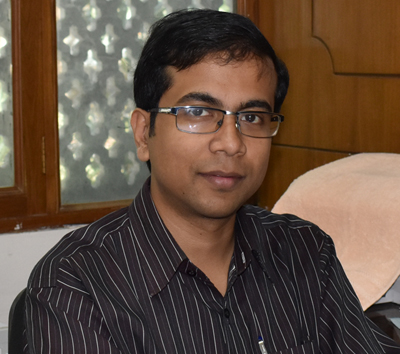 |
Riddhiman Dhar (He/Him, ;@DharRiddhiman) is an Assistant Professor at the Indian Institute of Technology Kharagpur. He studies the influence of genetic diversity and non-genetic heterogeneity on genotype-phenotype mapping. |
Talks will cover a diversity of study groups, research questions, and methodological approaches. Attendees will be able to ask questions to the speakers and the talks will be spaced by multiple breaks. In the last session, attendees will be able to interact with each other to discuss the challenges and opportunities of doing evolutionary biology research in South Asia.
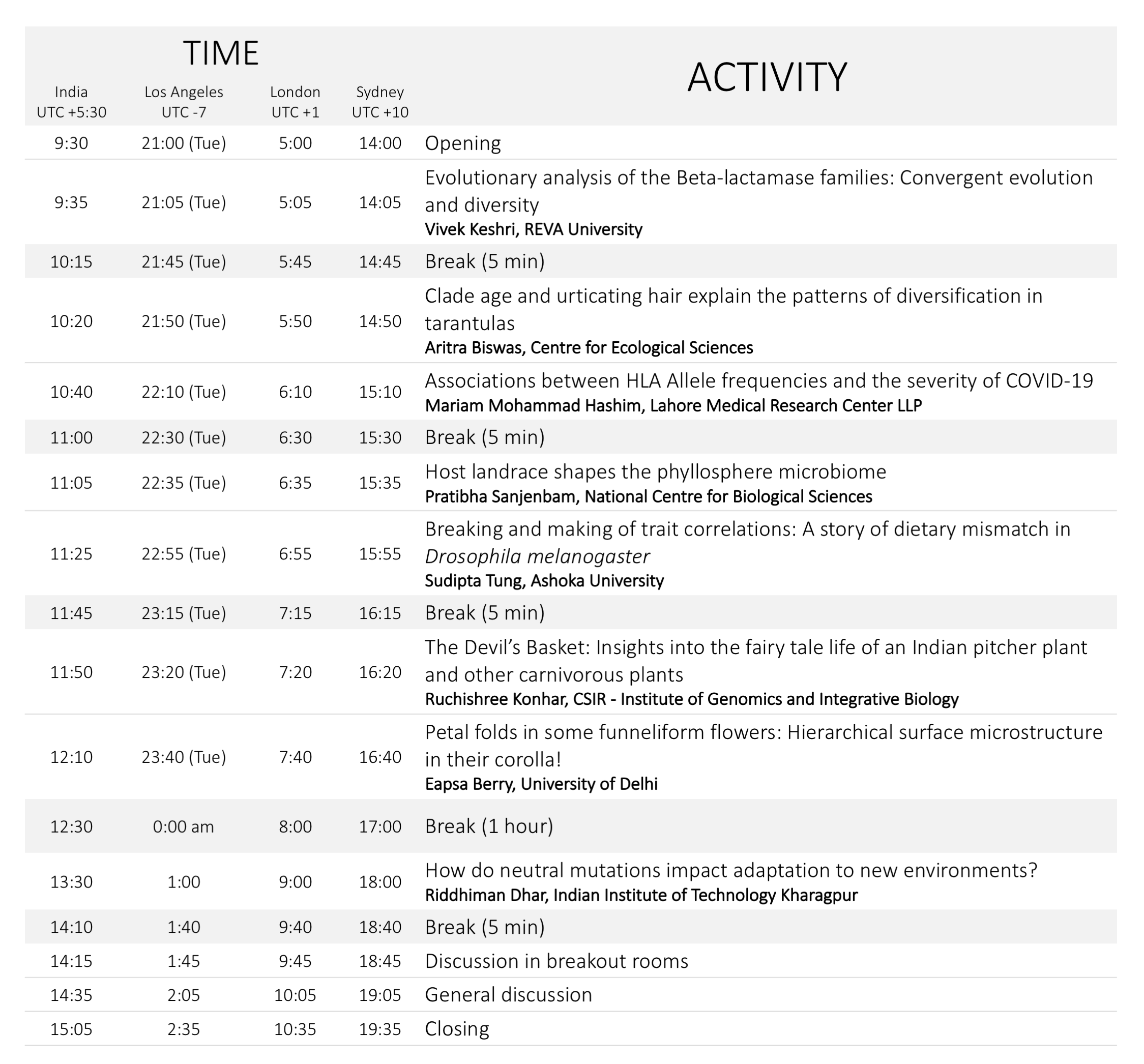
SSE will also offer a free virtual workshop on how to publish articles in Evolution. This workshop will be held the day after the symposium, on Thursday August 3, 2023, at 10:00 am Indian time and will be taught by three Associate Editors of Evolution:
In the first part of the workshop, participants will have the opportunity to discuss questions about how the journal's editorial process works. In the second part, participants will review a sample manuscript guided by the editors to identify the elements that contribute to the editorial success of a manuscript in Evolution.
This workshop is also an opportunity to discuss at length whether there are mismatches between the type of research that Evolution seeks to publish and the type of research that the evolutionary biology community in South Asia is pursuing, and how common ground can be found.
Registration for the symposium and workshop is considered an agreement to abide by Safe Evolution’s code of conduct. SSE is committed to creating an environment where everyone can participate without experiencing harassment, discrimination, or similar unwelcome, exclusionary behavior. All meeting participants must treat others with respect and consideration.
Registration for the symposium and workshop will be open until Monday, July 31, 2023 any time zone. To register, please fill out the following form: https://forms.gle/VPVVof1UKK5aUo7v7
Participants will receive an email in the days prior to the symposium and workshop with Zoom links.